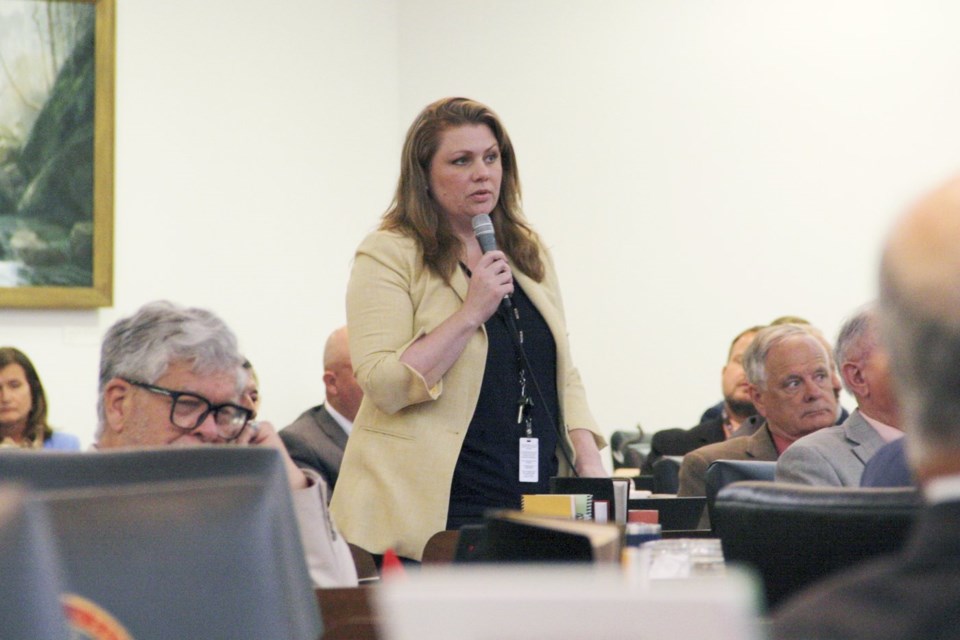RALEIGH, N.C. (AP) — Republican lawmakers in North Carolina struck a compromise on a bill that now maintains a health exemption for masking in public while preventing the use of masks during criminal activity, but only one chamber chose to vote on it Thursday.
The state Senate passed the new masking bill — negotiated by both chambers to remedy concerns on the removal of a pandemic-era health exemption — in a 28-0 vote that Senate Democrats were absent from in protest. But after a canceled committee and a lengthy private discussion among House Republicans, the House did not take up an immediate vote, which stalls the bill's passage to Democratic Gov. Roy Cooper for at least a few more days.
Republicans supporters say the legislation was prompted in part by the widespread use of masks by those protesting on college campuses nationwide against Israel’s war in Gaza — including at University of North Carolina at Chapel Hill.
Before the compromise, the bill eliminated a 2020 exemption for people who wore masks for health purposes in public, which outraged Democrats who said immunocompromised people could be unfairly targeted.
Under the new changes, the bill now allows anyone in public to wear “a medical or surgical grade mask for the purpose of preventing the spread of contagious disease.” It also adds the ability of private property owners to ask someone to temporarily remove their mask to identify them.
Another addition to the bill would allow some federal political committees greater latitude in moving contributions to county and state parties in North Carolina. Senate Republicans said that language would remove obstacles for groups like the Republican Governors Association and the Republican Attorneys General Association to give directly to the North Carolina Republican Party to assist in future elections.
Senate leader Phil Berger said the language will “level the playing field” after a 2020 State Board of Elections advisory opinion that he said favored the Democratic Governors Association and another group to bring money to the state Democratic Party in unlimited amounts. He said that Democrats didn't vote on the bill because they didn't have a way to defend the opinion.
But Senate Democrats said they withheld their votes because of how little time they were given to review the proposed bill — in particular the campaign finance changes. In a later news conference that focused solely on the campaign finance provisions, Sen. Michael Garrett of Guilford County likened them to “political money laundering” by helping wealthy donors secretly funnel money to the state GOP through Republican groups.
The new version of the bill also retains some original aspects of the legislation, such as enhancing punishments for people who wear a mask while committing a crime or purposefully block traffic during a demonstration.
The bill had moved quickly through the Senate until Rep. Erin Pare, Wake County's only Republican General Assembly member, posted on X that she wouldn't vote for the bill if it removed the health exemption. Her opposition led the House to pump the brakes on the bill's passage two weeks ago, which sent it to a negotiations team of lawmakers to reach a compromise.
Now, Pare told The Associated Press she was happy with the health provision, saying it was “the right thing to do.” The North Carolina Department of Health and Human Services drafted that specific language, she said.
To assuage concerns on the new bill version, House Speaker Tim Moore told reporters it needs to go through a vetting process before House members would pass it. Then, the chamber will vote on Tuesday.
“There's no major rush,” Moore said. “Let's just wait and deal with it next week.”
___
Associated Press writer Gary Robertson in Raleigh contributed to this report.
Makiya Seminera, The Associated Press




